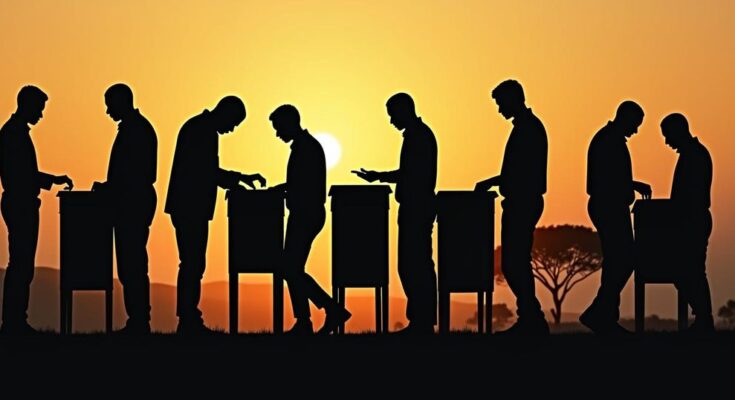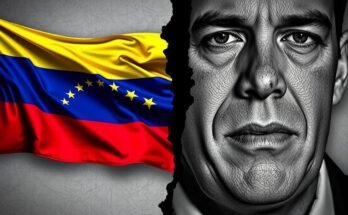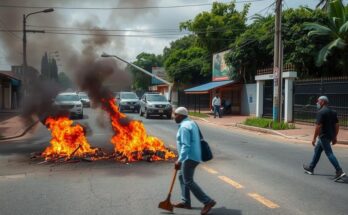Mozambicans are voting in a pivotal general election with Daniel Chapo representing the ruling Frelimo party, amid calls for change and economic reform. The election is particularly significant as it is the first time a Frelimo candidate has not fought in the independence war. Voter engagement highlights the youth’s concerns for the future, while analysts stress the need for economic opportunities amid persistent poverty and security challenges.
Mozambicans are currently participating in a significant general election poised to influence the country’s future leadership. Following his tenure of two terms, President Filipe Nyusi, who has been a part of the ruling Frelimo party for decades, cast his vote in Maputo shortly after the polls opened at 07:00 local time (05:00 GMT). The Frelimo party, which has maintained power since Mozambique’s independence from Portugal in 1975, is represented by Daniel Chapo, a 47-year-old candidate previously unknown in the political sphere, now campaigning as a symbol of change. Chapo’s main competitors include Venâncio Mondlane, an independent candidate, Ossufo Momade—the leader of the primary opposition party Renamo and a former rebel commander—and Lutero Simango from the Mozambique Democratic Movement (MDM). It is noteworthy that this election marks a turning point for Mozambique, as Chapo is the first Frelimo candidate not to have participated in the independence struggle. Voter turnout is expected to be robust, with over 16 million registered voters, as highlighted by sentiments expressed by the youth, such as 22-year-old Augusto Ndeve Pais, who indicated a hopeful outlook for the nation’s future. The challenges facing the next president will be substantial—chief among them will be addressing unemployment and economic instability in a nation where 62% of the population survives on less than $1.90 per day. Furthermore, Mozambique’s ambition for economic growth, fueled by newfound natural gas reserves, is impeded by a burgeoning Islamist insurgency in the Cabo Delgado region. Vote counting will commence at 18:00 local time, with results anticipated to be disclosed in the following two weeks, underscoring the suspense surrounding this pivotal electoral event.
The election in Mozambique reflects a critical juncture in the nation’s political landscape, marking the possibility of a departure from an established regime that has ruled for over fifty years. The focus on the new presidential candidates, especially Daniel Chapo, underscores a growing desire for reform amidst a struggling economy characterized by widespread poverty. Furthermore, Mozambique’s journey since its independence is marred by the legacy of a prolonged civil conflict as well as an ongoing insurgency that continues to affect the country’s developmental prospects.
In summary, the current presidential election in Mozambique is an important milestone that could redefine the political dynamics of the country amidst pressing economic challenges and social concerns. With Daniel Chapo positioned as a potential agent of change, the electorate awaits the outcome while hoping for an administration capable of addressing the dire poverty and security issues plaguing the nation.
Original Source: www.bbc.com




